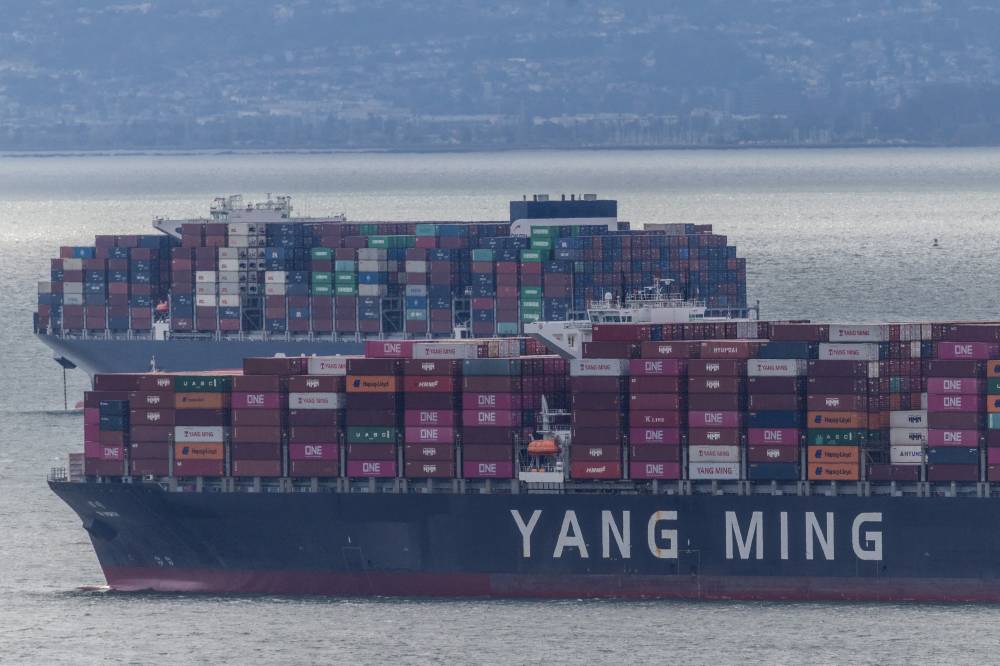US, China go on tariff slapping match

WASHINGTON/BEIJING—China on Tuesday slapped tariffs on US imports in a rapid response to new US duties on Chinese goods, renewing a trade war between the world’s top two economies as President Donald Trump sought to urge China to halt the flow of illicit drugs.
Washington and Beijing engaged in the tariff slapping match as Canada and Mexico won reprieve after bowing to Trump’s demand for them to stem the flow of fentanyl and illegal immigrants.
Trump’s additional 10 percent tariff across all Chinese imports into the US came into effect at 12:01 a.m. EST on Tuesday.
Within minutes, China’s Finance Ministry said it would impose levies of 15 percent for US coal and LNG and 10 percent for crude oil, farm equipment and some autos. The new tariffs on US exports will start on Feb. 10, the ministry said.
Separately, China’s Commerce Ministry and its Customs Administration said the country is imposing export controls on tungsten, tellurium, ruthenium, molybdenum and ruthenium-related items to “safeguard national security interests.”
Trump on Monday suspended his threat of 25 percent tariffs on Mexico and Canada at the last minute, agreeing to a 30-day pause in return for concessions on border and crime enforcement with the two neighboring countries.
There was no reprieve for China, and a White House spokesperson said Trump would not be speaking with Chinese President Xi Jinping until later in the week.
Tit-for-tat
During his first term in 2018, Trump initiated a brutal two-year trade war with China over its massive US trade surplus, with tit-for-tat tariffs on hundreds of billions of dollars worth of goods upending global supply chains and damaging the world economy.
To end that trade war, China agreed in 2020 to spend an extra $200 billion a year on US goods but the plan was derailed by the COVID pandemic and its annual trade deficit widened to $361 billion, according to Chinese customs data released last month.
Trump warned that he might further increase tariffs on China unless Beijing stemmed the flow of fentanyl, a deadly opioid, into the United States.
China has called fentanyl America’s problem and said it would challenge the tariffs at the World Trade Organization and take other countermeasures, but also left the door open for talks.
Border security
Both Canadian Prime Minister Justin Trudeau and Mexican President Claudia Sheinbaum said they had agreed to bolster border enforcement efforts in response to Trump’s demand to crack down on immigration and drug smuggling.
Canada agreed to deploy new technology and personnel along its border with the United States and launch cooperative efforts to fight organized crime, fentanyl smuggling and money laundering.
Mexico agreed to reinforce its northern border with 10,000 National Guard members to stem the flow of illegal migration and drugs.
The United States also made a commitment to prevent trafficking of high-powered weapons to Mexico, Sheinbaum said.
After speaking by phone with both leaders, Trump said he would try to negotiate economic agreements over the coming month with the two largest US trading partners, whose economies have become tightly intertwined with the United States since a landmark free-trade deal was struck in the 1990s.
The Canadian dollar earlier soared after slumping to its lowest in more than two decades.
The news also gave US stock index futures a lift after a day of losses on Wall Street, and sent oil prices lower.
Trump suggested on Sunday the 27-nation European Union would be his next target, but did not say when.
EU leaders at an informal summit in Brussels on Monday said Europe would be prepared to fight back if the US imposes tariffs, but also called for reason and negotiation.
The United States is the EU’s largest trade and investment partner.
Reuters, the news and media division of Thomson Reuters, is the world’s largest multimedia news provider, reaching billions of people worldwide every day. Reuters provides business, financial, national and international news to professionals via desktop terminals, the world's media organizations, industry events and directly to consumers.

















